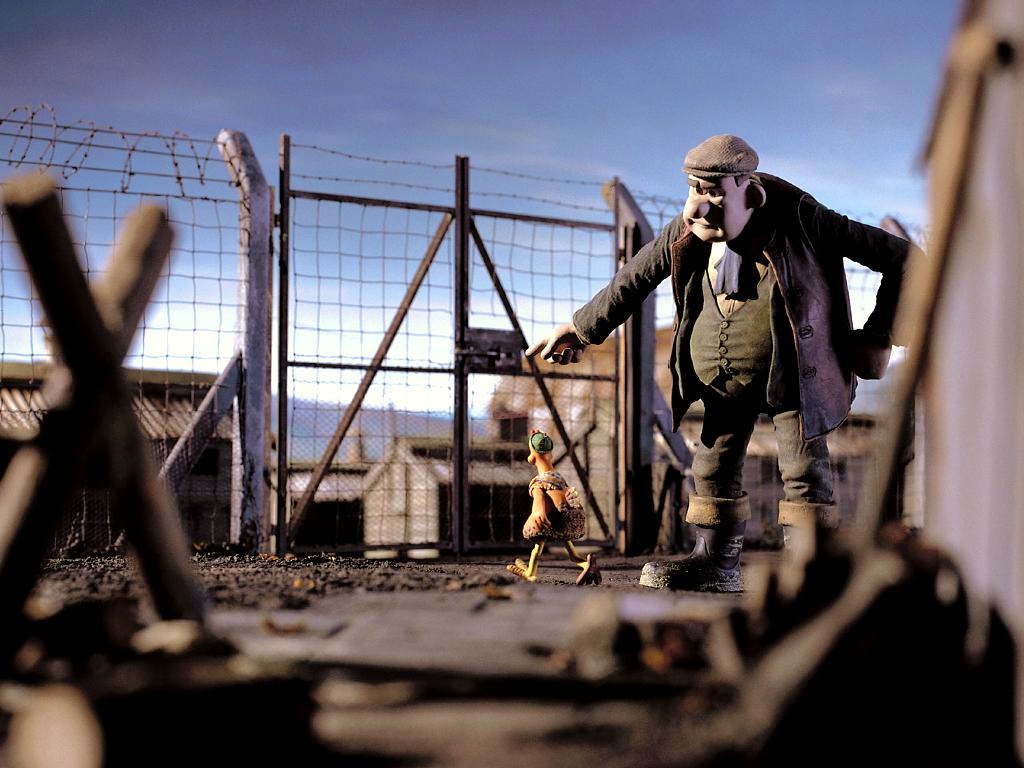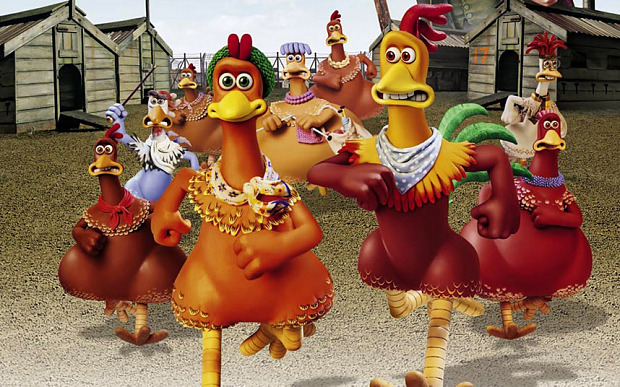Recently, I sat down to re-watch the film, Chicken Run. I must admit, it was a bit fun — a nice little walk down memory lane. You see, in 2012, this was the first movie that ultimately convinced me to go vegetarian. No, it wasn’t an award-winning documentary on the subject that turned me on to vegetarianism, it was Chicken Run.
Chicken Run is a clay-mation children’s movie. The story, at its core, is about hens on an egg farm trying to escape. It gets a little dark when the hens realize their farm will soon become a Chicken Pot Pie manufacturing facility. Long story short, the film portrays the exploitation of animals, hints at animal cruelty, and even shows a morbid scene of the death of a chicken.
While it’s just a kid’s movie, it actually has very complex messages. At the same time, it speaks directly to the innocence of children at an age where they likely still view animals as their friends. I imagine I’m not the only one who wanted to change my diet after watching Chicken Run (though, with very supportive parents, perhaps I was one of the lucky few and fortunate in my ability to take action on this decision).
Again, what I find interesting is that the film conveys a very sophisticated message, and here I’ll review five central themes: corporate green in animal agriculture, the shift toward factory farming, compromised ethics of farm workers, misleading marketing, and an animal’s the right to life.
Corporate Greed in Animal Agriculture
Mrs. Tweedy is the co-owner of the farm with her husband (though, it’s clear that she’s the boss in the operation). In her, we see a voracious hunger for increasing the revenue of the farm. She view the hens not as living animals, but as products. She has no reservations at the possibility of using her egg-laying hens instead for meat when the concept is presented to her.

Image Source: MyNissanLeaf.wordpress.com
This mirrors the reality of today’s factory farms. Animals are raised in unfathomable numbers, to the point where an unexpected loss (that is, a death) is inconsequential. In fact, it’s factored into the business plan. The efficiency of the process, furthermore, is much more important than the quality of an animal’s life, or the avoidance of suffering in the animal’s death.
The Shift Toward Factory Farming
Mrs. Tweedy’s desire for revenue goes hand-in-hand with another narrative: the shift away from small, family-owned farms in favor of factory farms. While industry marketing would like us to believe that animals are “happy” and are still raised by ol’ Farmer Joe from next door, that couldn’t be farther from the truth. If we think about it, it can’t make sense from a numbers perspective. To feed the number of people who still consume animal products using only small, family-owned farms would be impossible. Which is why today’s farms would be almost unrecognizable to previous generations.
And so, we see this in Chicken Run; as Mr. Tweedy’s family has been in the egg farming industry for generations, Mrs. Tweedy enters the picture and those days become mere memories of eras past.
Misleading Advertising
This brings us to another point driven home in Chicken Run: marketing in animal agriculture is misleading. At one point in the film, Mrs. Tweedy produces her new business brand.
Mrs. Tweedy: Imagine it! In less than a fortnight, every grocer’s in the county will be stocked with box upon box of “Mrs Tweedy’s Homemade Chicken Pies”.
Mr. Tweedy: Just “Mrs”?
Mrs. Tweedy: Woman’s touch. Makes the public feel more comfortable.
Mrs. Tweedy not only recognizes that there is a level of distrust of corporations and perhaps an underlying discomfort within consumers already about purchasing animal products, but she exploits that emotion by presenting her business differently. To be frank, there is nothing “womanly” about this woman—at least, not in the sense that there are certain qualities often associated with women that would make the public comfortable. She’s not some loving homemaker (for now, I’m avoiding a discussion of the gendered issues with this assumption, there are many); she’s not sweet; she’s not warm…Mrs. Tweedy is a short-tempered and aggressive woman. And her farm is certainly not as pleasant as the image on her billboard.

Image Source: FreeRepublic.com
So, she paints a different picture altogether. Exactly like the “happy cows” myth . . .sadly, the humane myth is an overwhelming challenge in helping others open their eyes and hearts to the poor treatment of animals.
Compromised Ethics of Farm Workers
The final theme I’ll touch upon revolves around the mistreatment and compromised ethics of farm workers. Mr. Tweedy is co-owner and husband of Mrs. Tweedy. He is not, however, on her same level. He is clearly subordinate to her.
Mr. Tweedy has a quiet demeanor about him, but he is clearly not happy or content. In his role, he becomes frustrated and angry, and seems to take pleasure in punishing the most persistent escapee, Ginger. He’s abused, himself, by Mrs. Tweedy. He seems aware of the hens’ desire to escape, but he’s shamed by his wife for recognizing their conspiring to escape.
His role in the vegan narrative is perhaps overlooked at first, but is actually a critical portrayal of workers in animal agriculture industries. The individuals who end up working on factory farms and in slaughterhouse are exploited terribly. Often minority individuals, they end up working in absolutely disgusting, deplorable environments performing violent actions on repeat. Their pay is usually abysmal, to boot. It’s no wonder, then, that these workers become aggressive — often abusing the animals, and sometimes releasing their violent tension on spouses and children.

Image Source: FanPop.com
For his behavior toward the hens and also his own personal experience of abuse, this character is not to be overlooked.
The Right to Life
Now, let’s review the most influential theme: that the chickens want to live. As sentient, living beings, animals are deserving of the freedom life. As Gary Francione explains,
“All sentient beings, humans or nonhuman, have one right: the basic right not to be treated as the property of other.”

Image Source: BoxOfficeTheory.com
In the film, we see sentience conveyed in the hens’ multiple attempts at escaping, in their willingness to help their peers avoid harm, and in their awareness of their fate. Chickens, indeed, are very smart animals. Whether or not a chicken is aware of their fate all along, I can’t say for certain. However, just the thought that they might, or could be, has the potential to invoke a strong feeling of empathy, especially to children.
While it’s all wrapped up in the tidy, innocuous little bow of a children’s movie, the overall message couldn’t be clearer: animals want to live.
As always, I’d love to hear from you!
Do you have information to contribute? Do you believe something in my post needs to be modified? Or do you have a reaction to the above post that you would love to share? Please feel free to comment below. I will monitor these comments to maintain a safe and comfortable environment. Also, I invite you to reach out and connect with me on Instagram at @crunchyvegangal


